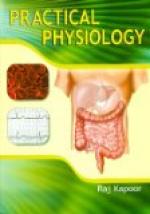78. Destructive Effect of Alcoholic Liquors upon Muscular Tissue. Alcoholic liquors retard the natural chemical changes so essential to good health, by which is meant the oxidation of the nutritious elements of food. Careful demonstration has proved also that the amount of carbon dioxide escaping from the lungs of intoxicated persons is from thirty to fifty per cent less than normal. This shut-in carbon stifles the nervous energy, and cuts off the power that controls muscular force. This lost force is in close ratio to the retained carbon: so much perverted chemical change, so much loss of muscular power. Not only the strength but the fine delicacy of muscular action is lost, the power of nice control of the hand and fingers, as in neat penmanship, or the use of musical instruments.
To this perverted chemical action is also due the fatty degeneration so common in inebriates, affecting the muscles, the heart, and the liver. These organs are encroached upon by globules of fat (a hydrocarbon), which, while very good in their proper place and quantity, become a source of disorder and even of death when they abnormally invade vital structures. Other poisons, as phosphorus, produce this fatty decay more rapidly; but alcohol causes it in a much more general way.
This is proved by the microscope, which plainly shows the condition mentioned, and the difference between the healthy tissues and those thus diseased.
[Illustration: Fig. 38.—Principal Muscles on the Left Side of Neck.
A, buccinator;
B, masseter;
C, depressor anguli oris;
D, anterior portion of the digastric;
E, mylo-hyoid;
F, tendon of the digastric;
G, sterno-hyoid;
H, sterno-thyroid;
K, omo-hyoid;
L, sternal origin of sterno-cleido-mastoid
muscle;
M, superior fibers of deltoid;
N, posterior scalenus;
O, clavicular origin of sterno-cleido-mastoid;
P, sterno-cleido-mastoid;
R, trapezius;
S, anterior constrictor;
T, splenius capitis;
V, stylo-hyoid;
W, posterior portion of the digastric;
X, fasciculi of ear muscles;
Z, occipital.
]
[NOTE. It was proposed during the Civil War to give each soldier in a certain army one gill of whiskey a day, because of great hardship and exposure. The eminent surgeon, Dr. Frank H. Hamilton of New York, thus expressed his views of the question: “It is earnestly desired that no such experiment will ever be repeated in the armies of the United States. In our own mind, the conviction is established, by the experience and observation of a life, that the regular routine employment of alcoholic stimulants by man in health is never, under any circumstances, useful. We make no exceptions in favor of cold or heat or rain.”
“It seems to me to follow from these Arctic experiences that the regular use of spirits, even in moderation, under conditions of great physical hardship, continued and exhausting labor, or exposure to severe cold cannot be too strongly deprecated.”
A. W. Greely, retired Brigadier
General, U.S.A., and formerly leader
of the Greely Expedition.]




